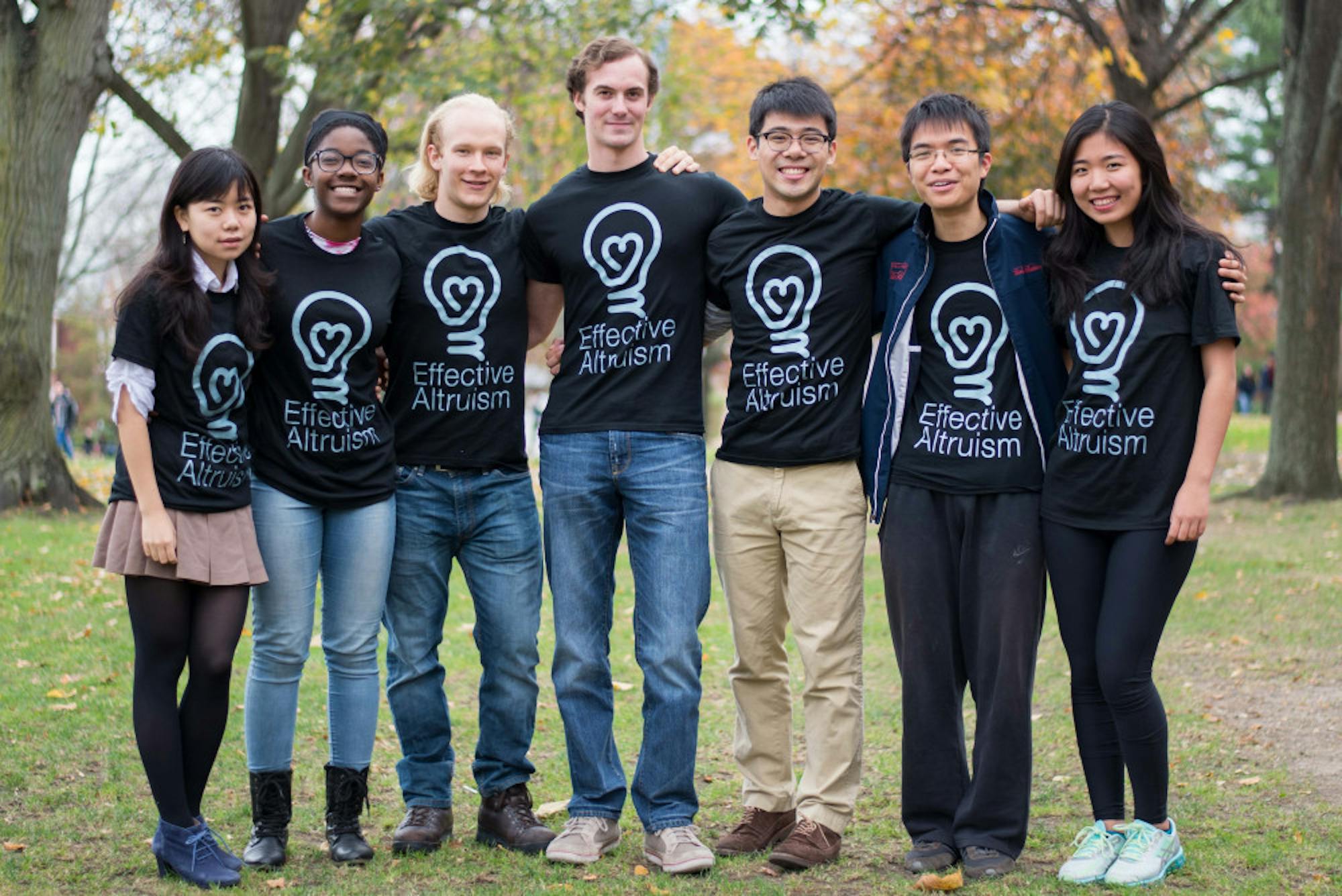Approximately 20 Tufts students have become regular members of the newly established campus chapter of Effective Altruism, a social and philosophical movement aimed at improving the world.
According to Tufts' Effective Altruism chapter co-founder Dillon Bowen, the movement is a “new and better way of doing good."
"It’s about improving the lives of as many people as we possibly can, by as much as we possibly can," Bowen, a senior, said.
Unlike other service organizations such as the Leonard Carmichael Society (LCS), which focuses on local problems -- specifically those facing residents of Boston, Somerville and Medford -- Effective Altruism takes a far-reaching approach to charity, concentrating on effecting the greatest positive change possible.
“It turns out that most of these problems and the most tractable problems are ones which are more global in nature,” he said. “We try to think of think of everyone in the world as though they’re a part of our local community.”
Bowen said he decided to found Effective Altruism at Tufts after returning from his year abroad at the University of Oxford, home of the Centre for Effective Altruism. While in London, Bowen was the president of the Centre's chapter of 80,000 Hours, an organization that helps students choose careers that will allow them to bring about the greatest positive social impact, according to the organization's website.
"It seems that every school should have something like it," Bowen said.
Co-founder Luke Sabor, a senior, also studied abroad in London last year. He said he saw what Bowen was doing and decided to support him in bringing Effective Altruism to Tufts.
According to Bowen and Sabor, Effective Altruism has already hosted multiple events on campus this year. The group's first lecture featured a talk from a couple that annually donates about 40 percent of their pre-tax earnings to charity.
Tomorrow afternoon, the chapter will host a talk by Catherine Hollander, an outreach associate for donation platform GiveWell, one of the world's leading charity evaluation organizations.
The group has also held a discussion group and game night event to help members of the organization bond, Bowen said.
“In addition to getting information out about Effective Altruism, we also want to create a community," he said. "It’s important not just to be an effective altruist in isolation, but to also have this community aspect and network of people who believe in and live by similar ethical principles."
Sabor added that having a community is important to helping group members live by effective altruist philosophy.
“It definitely makes it easier to be committed to those sorts of principles when you have a support group of other people who are also committed,” he said.
Effective Altruism has not yet been recognized by the Tufts Community Union (TCU) Senate, but according to Bowen and Sabor the organization is scheduled for a hearing in the near future. If the group successfully gains recognition, the two co-founders hope to apply for Senate funding and to attract more speakers. Bowen and Sabor also hope to bring in more group members and begin collaborating with the Harvard and MIT chapters of Effective Altruism, since those chapters already have networks of speakers and connections.
The long-term goal is to get as many people as possible to pledge to donate a self-determined percentage of their income to charity, Dillon said. He added that the roughly 1,300 people worldwide who have signed the pledge have already donated hundreds of millions of dollars, according to estimations.
Camille Mbayo, one of the members in charge of generating publicity for Effective Altruism, explained that the group seeks to educate donors to keep them informed about how their money will be used.
"I feel like it's a little like educating shoppers in figuring out what the best brand for them is," Mbayo, a sophomore, told the Daily in an email. "In the context of charities, some may say that what matters more is the number of lives saved."
“This is extremely important because a lot of the value that our money could have or our time could have when we try to help others is not actualized,” he said.
According to Bowen, the poorest 20 percent of the world’s population is several times more destitute than the poorest 20 percent of people in the United States. Moreover, the poorest people in America are wealthier than 90 percent of the world’s poorest people. Therefore, the relative effect of donating to charities that help the world's most destitute people is “orders of magnitude greater” than donating the same amount to people living in the United States, he said.
“We are very rightly concerned with poverty everywhere, including the United States,” he said. “But given how much worse poverty is on a global scale, it makes sense to be concerned with the global population.”
Mbayo said that she decided to join Effective Altruism because she wanted learn about the motivation behind the members' altruism.
"It's not every day you meet a group of people who seek to help people they have no emotional attachment to, so I decided to go figure out what motivated these people," Mbayo told the Daily in an email. "However, what I'm learning is that intentions don't matter, as long as they are doing positive things, which they are."






